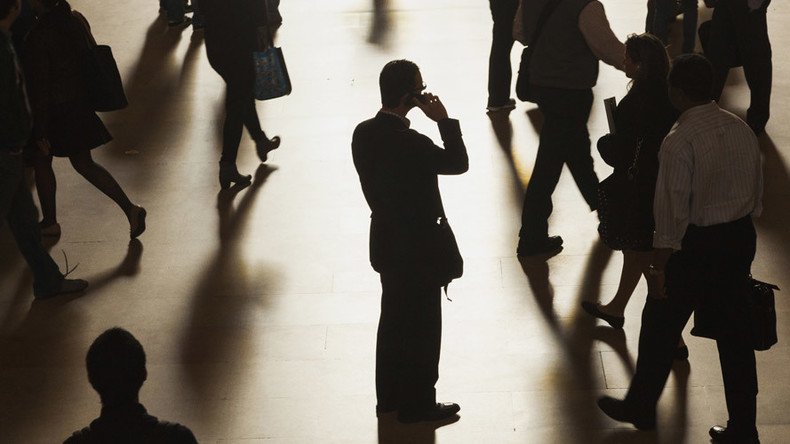Government may access citizens’ phone location data without a warrant – US Court of Appeals

A federal appeals court has overturned a 2015 ruling prohibiting police from accessing citizens’ cell phone location data without a warrant, ruling that the Constitution allows the US government to obtain such records without a judge’s permission.
The Fourth US Circuit Court of Appeals in Richmond, Virginia voted 12-3 that the Fourth Amendment permits the government to access cell-site location information (CSLI) without a court warrant.
The Fourth Amendment ensures that “the right of the people to be secure in their persons, houses, papers, and effects, against unreasonable searches and seizures, shall not be violated.”
‘Hatchet to liberty’: New senate bill expands FBI’s warrantless #surveillance powers https://t.co/9goqVRqlz0pic.twitter.com/jnVN0hZkrB
— RT America (@RT_America) May 27, 2016
However, this amendment does not cover location data, “undeniably” non-content information that customers share with mobile service providers every time they use their phones, Judge Diana Gribbon Motz wrote for the majority.
“Whenever he expects his phone to work, he is permitting – indeed, requesting – his service provider to establish a connection between his phone and a nearby cell tower,” she wrote. “A cell phone user thus voluntarily conveys the information necessary.”
Motz stressed that “location matters,” pointing out that every user understands this when they step out “to get a signal.”
Despite court ruling, gov’t still wants to track cellphones without a warrant http://t.co/pvKIEChO46pic.twitter.com/M1SCOXnKWE
— RT America (@RT_America) September 19, 2015
Judge James Wynn, who represented the minority in the decision, disagreed with Motz, arguing that customers may not know specifics, such as which cell phone tower their device is using.
“Even if cellphone customers have a vague awareness that their location affects the number of ‘bars’ on their phone, they surely do not know which cell phone tower their call will be routed through,” Wynn wrote.
The court cited the Third Party Doctrine, a 1970s relic which maintains that information Americans disclose to a third party is not subject to privacy protection. This can include bank and credit card records or, as in this case, the location of the nearest service tower to which their phone connects.
In United States v. Miller, the Supreme Court ruled that the contents of original checks and deposit slips were “not confidential communications,” as they were given to a third party, in that case, the bank.
“The Supreme Court has reasoned that, by ‘revealing his affairs to another,’ an individual ‘takes the risk’… that the information will be conveyed by that person to the Government,” Motz wrote.
The recent ruling was to settle a dispute over a case from 2011, when Maryland law enforcement used location data obtained from Sprint to pin down Aaron Graham and Eric Jordan for a string of robberies.
Warrant now required for federal '#Stingray' surveillance use - DoJ http://t.co/NzIU9AJ1hTpic.twitter.com/jkyay7gzX0
— RT America (@RT_America) September 5, 2015
The agents collected information over 221 days that included roughly 29,000 location-identifying data points for each defendant, leading to their convictions and lengthy prison sentences.
At the time, lawyers for the defendants argued that by accessing cell tower records without a warrant police had violated their clients’ privacy.
“The Supreme Court may in the future limit, or even eliminate, the third-party doctrine,” the court wrote in the opinion. “Congress may act to require a warrant for CSLI. But without a change in controlling law, we cannot conclude that the Government violated the Fourth Amendment in this case.”
Tuesday’s ruling overturned an August 2015 decision made by a three-judge panel of the Fourth Circuit which ruled that the government needed a warrant to access archived cell-site location information. However, the court voted to rehear the case with all 15 judges participating.












